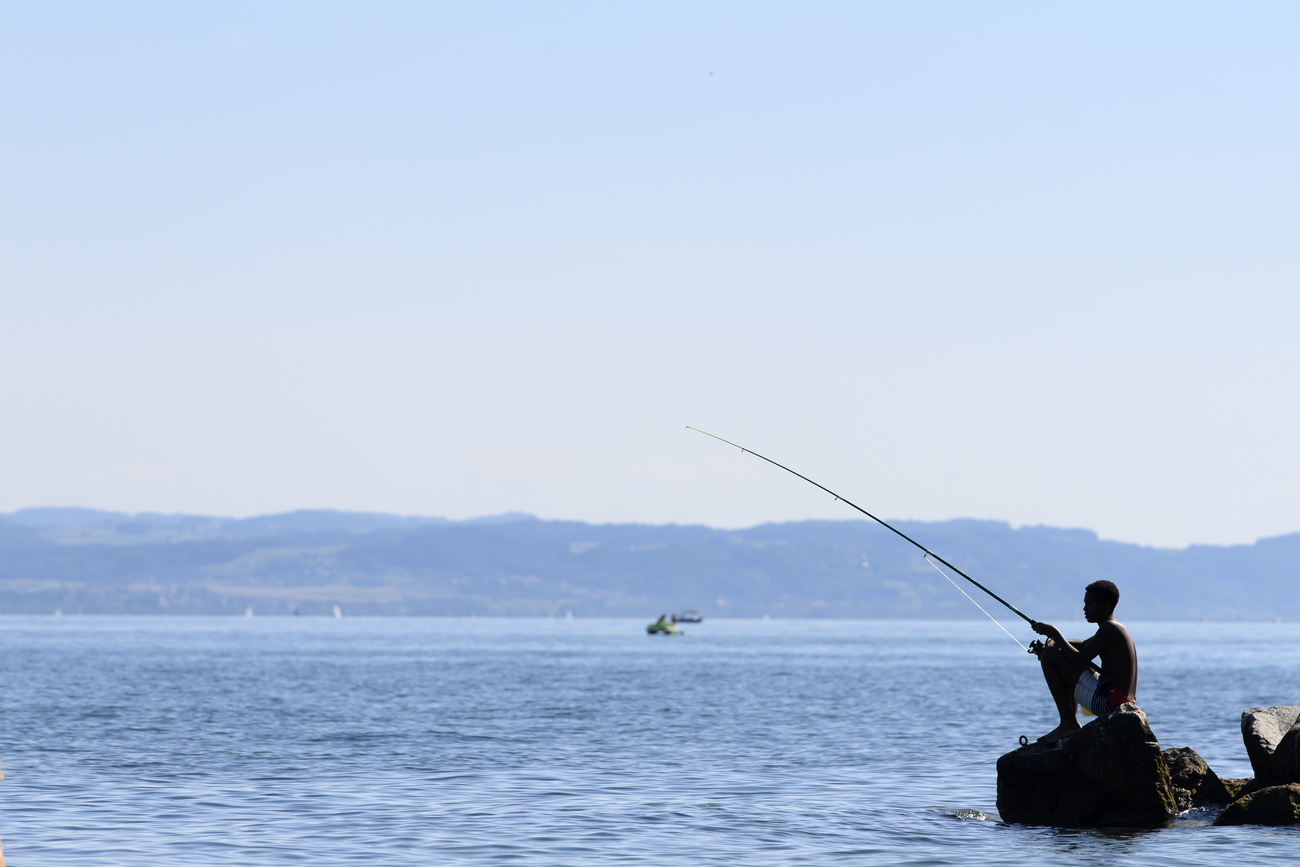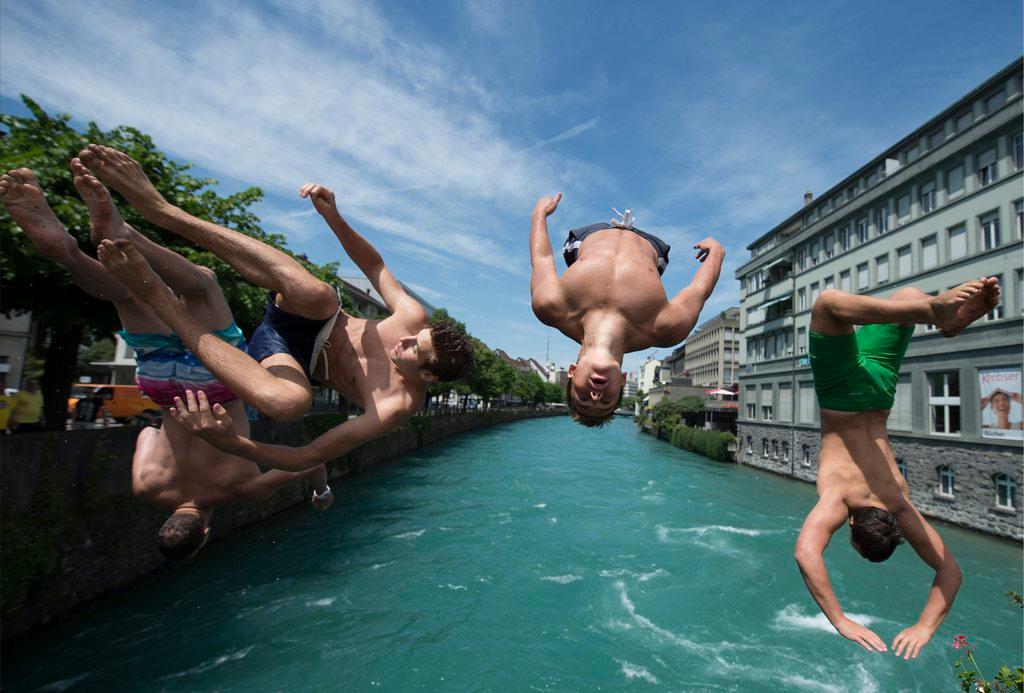
Toxic bacteria in Lake Neuchâtel leads to bathing ban

Authorities have advised against swimming in Lake Neuchâtel in western Switzerland, after several dogs were found to have died of possible cyanobacterial poisoning since Wednesday.
Scientific tests are ongoing to determine whether or not the six animals’ deaths were indeed caused by contamination by a cyanobacterial toxin, Neuchâtel police said late on Thursday.
In the meantime, they evacuated a stretch of beaches around the point on the west side of the lake where the Areuse river enters, about 8 kilometres from Neuchâtel.
Authorities from the canton, as well as the neighbouring regions of Fribourg and Vaud, have advised against swimming in Lake Neuchâtel as a precaution. No other cases of poisoning have been found beyond the affected area.
Cyanobacterial toxins develop as gelatinous substances which float on the surface of stagnant waters. They are also known as “blue-green algae” – a clue to what they can look like – and spread particularly well during periods of high temperature. They can be poisonous to humans if ingested.
“Symptoms are firstly vomiting. A swimmer would quickly feel problems coming on, and in such a case should call a doctor, head to emergency services, or in the worst-case scenario call an ambulance,” said a Neuchâtel police spokesperson to Swiss public radio RTS.

More
Why today’s Swiss waterways are fit for swimming

In compliance with the JTI standards
More: SWI swissinfo.ch certified by the Journalism Trust Initiative



























You can find an overview of ongoing debates with our journalists here . Please join us!
If you want to start a conversation about a topic raised in this article or want to report factual errors, email us at english@swissinfo.ch.